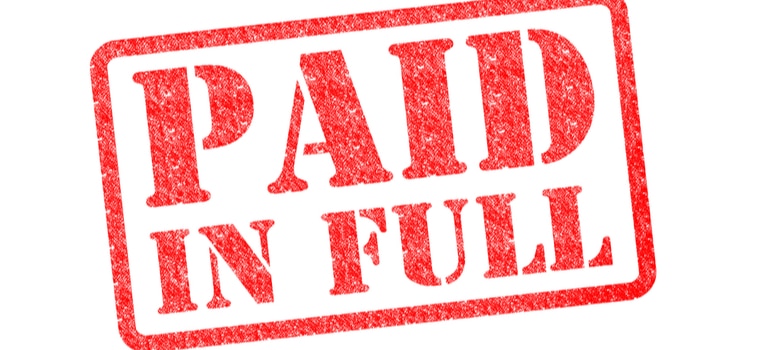The credit history in your credit report is based on information submitted by your creditors. Each creditor that reports your information has its own reporting schedule.
If you make your payment immediately just before a reporting date it may appear on your credit report immediately. If you make a payment early in a reporting cycle it may not appear in your report until after the next reporting date. Depending on the creditor, the reporting date could be at 30-day intervals or longer.
How Does Information Get to my Credit Report?
The account information on your credit report is reported voluntarily by your creditors to a credit reporting company. They are not required to report this information or to submit it on a fixed schedule.
There are three credit reporting bureaus: Experian, Equifax, and TransUnion. Some creditors report to all three, some to only two, some to only one. Some small lenders may not report at all. If you are looking at your credit report from Experian and your creditor reports only to Equifax or TransUnion, your payment may not be reflected even if it has been reported.
Each lender reports on its own schedule. Major lenders often report monthly. Other lenders may report every 45 days or even quarterly.
When Will My Payment be Reflected on my Credit Report?
When a lender makes a report to a credit reporting bureau the new information is reflected in your credit report almost immediately. A delay in the appearance of information is usually caused by the lender’s reporting cycle.
Your payment will usually be reflected in the lender’s next report. If you make a payment late in the reporting cycle it may be reported within days. If you make a payment early in the reporting cycle it will not be reported until the end of the cycle.
For example, let’s say your creditor reports on the 30th of every month. If you make a payment on June 25th, the payment should be reported on the 30th and may appear on your credit report in less than a week. If you make a payment on July 1st, that payment will not be reported until July 30 and may appear in your credit report a month after you made your payment.
If you’re paying a small local creditor that reports every quarter, your payment may not be reflected for several months.
If you are negotiating a large loan, usually a mortgage, and your credit is within a few points of a cutoff point, your lender may request a rapid rescore, which updates your credit report almost immediately. Only a lender can request a rapid rescore and they will usually have to pay a fee for it.
If your payment has not appeared on your credit report after 90 days, contact your creditor and ask whether it has been reported.
How Will Paying My Loan Affect My Credit?
When your paid-off loan appears on your credit report you may expect to see your credit improve. That doesn’t always happen. There may be no change in your credit, or your credit may even drop in the short term.
You have three different credit reports, one from each of the three credit reporting bureaus. The information on them may not be exactly the same. Some lenders may not report to all three credit reporting bureaus.
Reporting is done through two major bureaus: FICO and VantageScore. Each provides multiple credit scores based on different interpretations of information from the credit reporting companies. Your score from any given source may vary because of differences in the sources or the weightings given to different factors.
Some people pay off a loan and discover that their credit has gone down. This happens for several reasons.
- The average age of your accounts is a factor in your credit score. If you pay off an older loan it will receive a lower weighting in your score, because active accounts are given more weight than closed accounts. The average age of your accounts may decrease when you pay off your loan.
- Your credit mix is also a factor in computing your credit score. Lenders like to see a mix of revolving credit, like credit cards, and installment credit, like car loans, student loans, and mortgages. Paying off an installment loan may affect your credit mix, especially if it’s your only installment loan.
- A loan that is close to being paid off may have a positive impact on your credit utilization ratio because the remaining balance is only a small percentage of the original loan amount. When you pay the loan its positive impact on your credit utilization may no longer be factored into your credit.
- Your credit may also have dropped for reasons that are not connected to your payment. Make sure that you don’t have late payments on other accounts and check your credit report for possible errors.
Don’t extend a loan just because paying it off might cause a small drop in your score. You’ll pay more in interest. Once you’ve paid that loan off you can move on to reducing other debts. In the long run, paying off a loan will help your finances.
Conclusion
If your loan payment has not been reflected in your credit report, don’t panic. Payments may not be reflected on your credit report immediately. Delays are usually caused by your lender’s reporting schedule. If your payment is not shown on your report after 90 days, check with your lender and check to see if the payment has been reported.





